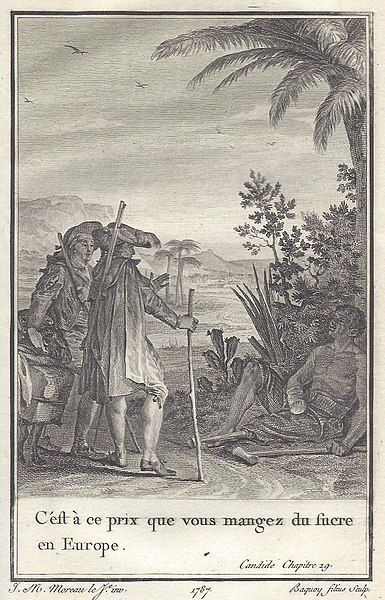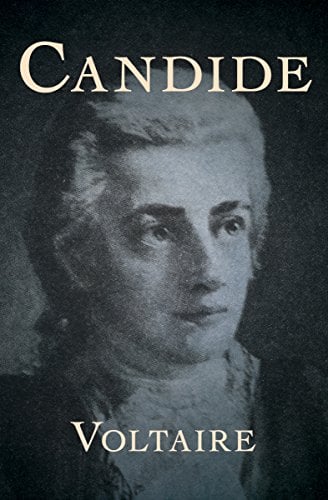

Stone were formed to be cut and made into country houses” (7) and so on. Legs were obviously created to be breeched, and thus we have breeches. Note well that noses were made to wear spectacles thus we have spectacles. Note an early lecture by Pangloss: “It is demonstrated… that things cannot be otherwise for, since every-thing was made for an end, all is necessarily for the best end. The argument that this world is the best of all possible worlds is a position that is attribut-ed to Leibniz at several junctures in the text and is caricatured on numerous occasions. But for now it is important to consider the precise theological argument that Voltaire stylistically renders absurd through the adventures of Candide. We will return to this later as we con-sider the surprising end to the book and its emphasis on labor and cultivation. I believe that Voltaire argues against both one-sided positions in this book, though his emphasis surely rests on dismantling any naïve optimism toward the concepts of goodness or rational harmony in nature and human affairs.

Both positions exclude important exceptions and each is theologically laden with a significant interpretation of reality. At the same time, it is also easy to say that the world is purely evil or chaotic. It is easy to say along with Pangloss that all is well and that all suffering leads toward the greatest good. The challenge for each perspective is to fully account for the radical evil, the apathy of nature, and the tender moments of companionship and love that are depicted throughout the book. Our reactions to the book likely betray our fundamental convic-tions toward its central questions.

On the other hand, if we agree with a character like Martin, who has resigned himself to expect chaos and indifference in nature and selfishness in human affairs, the book may read as an affirmation, a bitter comedy that unravels as Candide finds himself constantly upend-ed in spite of his naïve optimism. From this perspective, each new calamity is a trial, an ordeal that tests our own faith by forcing us to remain hopeful for a teleological explanation for the momentary yet momentous suffering of the charac-ters in the book. The fine line between mockery and satire, between tragedy and comedy, depends on the position each of us holds regarding the central question of the book: is this the best of all possible worlds? If our convictions accord with Candide and Professor Pangloss in affirming that this is indeed the best possible world, the book may read as a pro-longed and tortuous trial, if not an outright tragedy when Candide begins to lose hope. The degree to which Voltaire’s Candide can be categorized as a comedy is determined in part by the perspective of each unique reader. About Atheisms & Theologies Voltaire CandideĬandide.


 0 kommentar(er)
0 kommentar(er)
